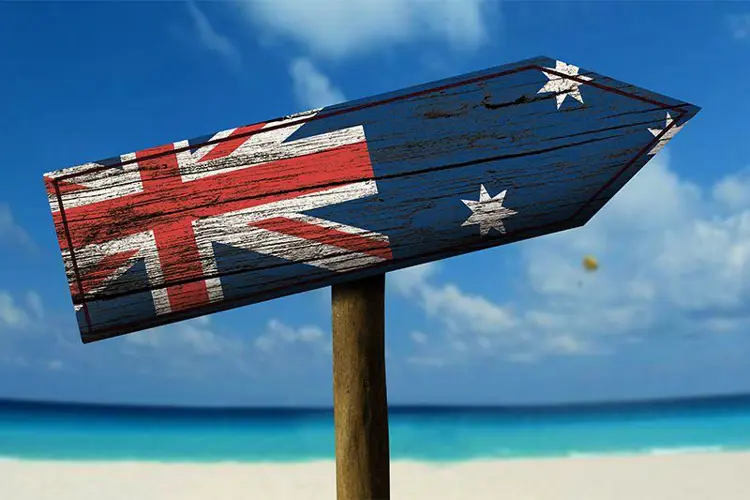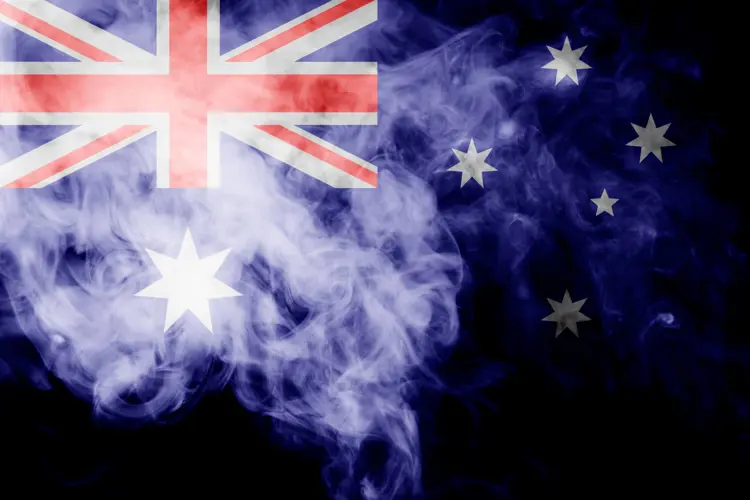Soccer fans from around the world will be traveling to Qatar for the World Cup. But football enthusiasts who expect to vape will be in for a rude awakening when they reach the small Arab country. Like many other “vices” popular elsewhere in the world, vaping is not allowed in Qatar.
The World Cup takes place every four years, and includes national teams from around the world. This year, 32 teams have qualified through preliminary regional tournaments to compete in the first World Cup held in an Arab country. The tournament begins with group playoffs this Sunday, Nov. 20, and runs through Dec. 18, when the championship match will be held.
The selection of Qatar as host was controversial from the start. Objections to the choice have centered around the conservative Muslim monarchy’s illiberal laws on sex and alcohol use, its human rights record, and poor labor conditions faced by foreign workers building stadiums and other tournament infrastructure. There have also been allegations of bribes accepted by officials at the Fédération Internationale de Football Association (FIFA)—soccer's governing body.
Vapes are strictly prohibited in Qatar
Vaping products are completely prohibited in Qatar. They can’t be imported, sold, purchased, used or even possessed. Products brought in by travelers can be seized by customs at entry, and while officials may simply seize and dispose of them, foreign visitors can also be criminally charged for possession or importing.
Any violation of the country’s strict vape ban can be punished by fines of up to $2,700 or prison sentences of up to three months. Vaping has been illegal in Qatar since 2014, according to the Global State of Tobacco Harm Reduction (GSTHR) website. The same restrictions and penalties apply to heated tobacco products like IQOS.
“The FIFA World Cup being held in Qatar in 2022 offers a powerful opportunity to take global tobacco control efforts to a new level,” said a World Health Organization (WHO) tobacco control official in a press release cheering Qatar's World Cup tobacco and nicotine restrictions.
Some smokeless tobacco—including snus—and nicotine pouches are allowed and apparently sold in Qatar, but even use of invisible oral products in areas that prohibit smoking may be restricted, according to GSTHR. Nicotine replacement therapy (NRT) products like nicotine gum are legal, but are only sold in pharmacies and require a prescription.
A UK e-liquid manufacturer, in an unfortunate publicity stunt, has offered to pay the fines of British vapers punished by Qatar courts for vaping. Their promotion promises reimbursement for any fines incurred—but doesn’t explain how they will reimburse jail sentences.
Smoking is allowed - along with flogging and stoning
Cigarettes are, of course, legal in Qatar. In fact, more than 25 percent of Qatari men smoke, and cigarette use among them seems to be rising. (In contrast with the high smoking prevalence among men, just 0.6 percent of women in Qatar smoke. Such a disparity isn’t unusual in countries where women’s rights and freedoms are curtailed by an authoritarian patriarchy.)
Qatar is a tiny but wealthy Muslim country located on the Persian Gulf, with a population of less than three million people (about 90 percent of which are not citizens). The country is home to huge natural gas reserves. Qatar’s only border is with Saudi Arabia, with which it shares many conservative customs, laws, and labor practices. Women were not allowed to vote in Qatar until 1999, and some crimes can still be punished by flogging or stoning.
Today it was reported that Qatar has banned the sale of beer (and other alcoholic drinks) at the country’s eight World Cup stadiums. The decision reportedly came from the Qatari royal family. It wasn’t explained why the rulers waited till two days before the tournament began to announce the alcohol ban, when the country has had 12 years to announce such rules.
The Freemax REXA PRO and REXA SMART are highly advanced pod vapes, offering seemingly endless features, beautiful touchscreens, and new DUOMAX pods.
The OXVA XLIM Pro 2 DNA is powered by a custom-made Evolv DNA chipset, offering a Replay function and dry hit protection. Read our review to find out more.
The SKE Bar is a 2 mL replaceable pod vape with a 500 mAh battery, a 1.2-ohm mesh coil, and 35 flavors to choose from in 2% nicotine.
Because of declining cigarette sales, state governments in the U.S. and countries around the world are looking to vapor products as a new source of tax revenue.
The legal age to buy e-cigarettes and other vaping products varies around the world. The United States recently changed the legal minimum sales age to 21.
A list of vaping product flavor bans and online sales bans in the United States, and sales and possession bans in other countries.

















